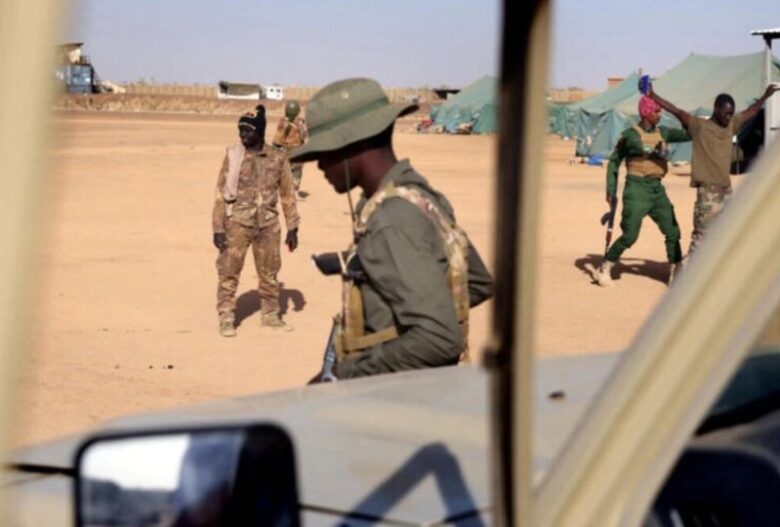A security source, speaking anonymously, confirmed that 77 people were killed and 255 wounded in the attacks that took place on Tuesday in Bamako.
An official document obtained by AFP suggests the death toll may be closer to 100, identifying 81 victims. Local reports indicate that funerals for around 50 military police students were scheduled for Thursday.
The attack, claimed by the al-Qaeda-linked Group to Support Islam and Muslims (JNIM), represents a significant escalation in violence, as such operations have become rare in Bamako. Typically, the capital is less affected by the frequent assaults that occur in other regions of the country.
Mali’s military authorities have yet to provide an official death toll, but they acknowledged that “some human lives were lost,” particularly among military police personnel.
JNIM asserted that several dozen of its fighters managed to inflict heavy casualties on their adversaries, including members of the Russian paramilitary group Wagner.
This incident coincided with the one-year anniversary of the formation of the Alliance of Sahel States (AES), a coalition formed by Mali, Niger, and Burkina Faso, all of which have been under military rule since a series of coups began in 2020.
The alliance has distanced itself from former colonial power France, seeking military and political partnerships with other nations, including Russia.
In the early hours of Tuesday, gunfire and explosions erupted in Bamako as JNIM militants targeted a military police school and a nearby airport.
The jihadist group later released footage of its fighters firing into the presidential hangar and damaging aircraft.
Since 2016, Bamako has not experienced an attack of this magnitude. Information about the assault remains limited due to restrictions imposed by the ruling junta.
The incident has drawn condemnation from regional neighbors like Senegal and the African Union, as well as condolences from the French embassy in Mali.
Experts believe this attack sends a clear message to Malian authorities about the need for heightened security, particularly in urban areas, as jihadists continue to operate freely in the Sahel.
The events have sparked calls for accountability and unity among the population, amid fears that certain communities might face retaliation for the attack.









Got a Question?
Find us on Socials or Contact us and we’ll get back to you as soon as possible.